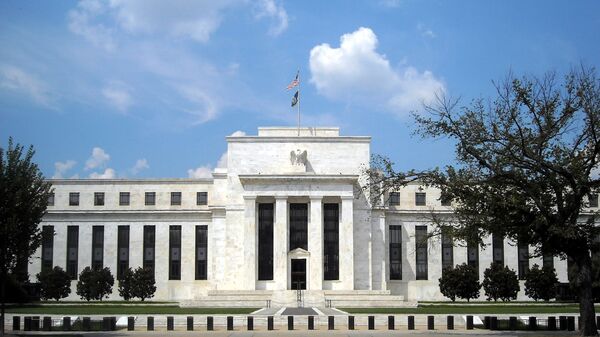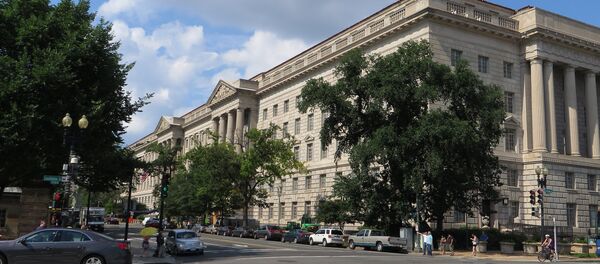Kristian Rouz — US consumer prices rose in September at their fastest pace in eight months, due to a significant increase in petrol prices. The aftermath of Hurricanes Harvey and Irma disrupted US Gulf Coast refining capabilities, and, albeit hitting the US economy, provided a more sustainable footing for the Federal Reserve to continue its base interest rate hikes.
However, underlying inflation, a measure that excludes food and fuel, remained subdued, as input and output costs in the manufacturing sector haven't changed, whilst consumer demand expanded and the dollar's strength boosted US imports.
Central bank officials are engaged in a fierce debate over the further path of monetary policy, as President Trump prepares to implement his fiscal stimulus package. Inflation is also subject to discussion, as weaker underlying figures suggest an increase in Fed interest rates might hurt GDP growth.
Annualized inflation accelerated to 2.2 percent in September from 1.9 percent the previous month, whilst month-on-month consumer price gains advanced to 0.5 percent from 0.4 percent in August.
"The firmness in retail sales should override the enduring mystery of low inflation to spur a December Fed rate hike," Sal Guatieri of Toronto-based BMO Capital Markets says.
Whilst September inflation has surpassed the Fed's 2 percent target, some policymakers argue this is not reason enough to lift rates. Core inflation is still below target at 1.7 percent, and the larger increase in prices last month was a result of natural disasters, meaning a monetary policy move would hurt the economy rather than rein in inflation.
Dallas Federal Reserve Bank President Robert Kaplan says the central bank could periodically review its inflation target depending on external circumstances.
"Other countries have strategic reviews that they do every number of years to relook at their targets… and I actually think that might be a healthy thing for the Federal Reserve to do," Kaplan said.
He suggested a formalized review of central bank macroeconomic indicators could help improve policy efficiency.
An increased demand for construction materials and automobiles in these states is poised to contribute to a stronger Q3 growth.
US consumer sentiment also improved, hitting its 13-year high due to the ongoing major rally in the stock market, easing petrol prices, which peaked in early September, low unemployment and a gradual liftoff in salaries and wages.
"While the early October surge indicates greater optimism about the future course of the economy, it also reflects an unmistakable sense among consumers that economic prospects are now about as good as could be expected," Richard Curtin, supervisor of the University of Michigan consumer poll, said.
Curtin added that consumers are not expecting a recession anytime soon, which determines their approach to personal finance.
The US economy expanded by 3.1 percent year-on-year in Q2, and, according to the Atlanta Fed's outlook, GDP added some 2.7 percent in the third quarter.





